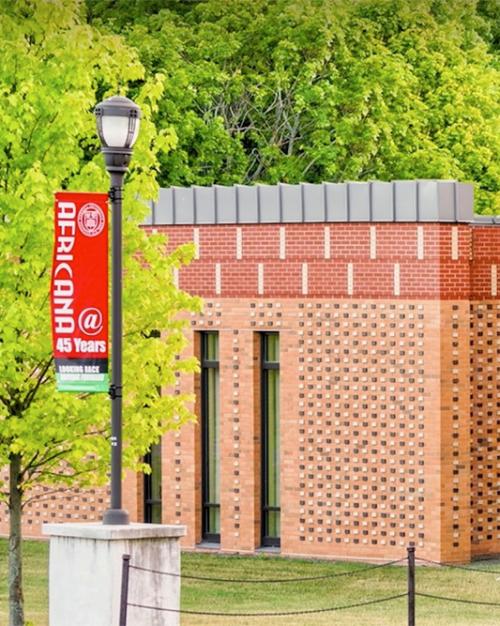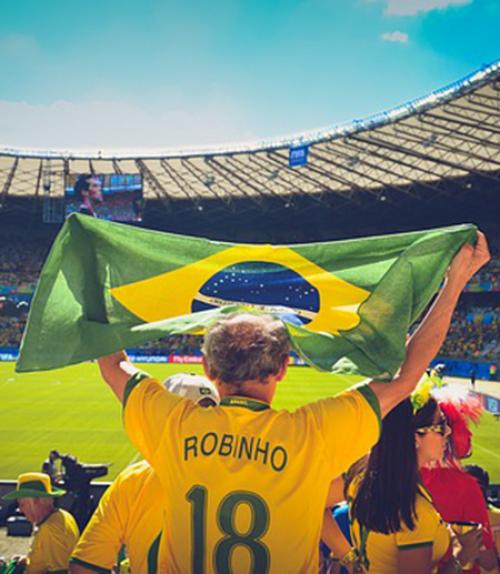The little-known fact that philosopher Martin Heidegger was a fan of European football and an admirer of famed West German player Franz Beckenbauer launches Grant Farred’s latest exploration of philosophy through sport in his new book, “Entre Nous: Between the World Cup and Me.”
Unsurprisingly, Heidegger – “who loved the aesthetic and technical beauty of the game,” Farred writes – played it as a youth. So, too, did philosophers Jacques Derrida and Albert Camus. Jean-Paul Sartre once notably made an observation about the sport, perhaps qualifying him as an “underemployed color commentator,” Farred notes.
Farred, a professor of Africana studies in the College of Arts and Sciences, uses the examples of two international stars on the Spanish club Barcelona – forward Lionel Messi, captain of the Argentinian national team, and striker Luis Suárez, who also plays for Uruguay – to theorize the relationship between sports and the intertwined experiences of relation, separation and belonging. Farred’s philosophical approach to sport offers insight into understanding the nature of being in the world.
Heidegger died in 1976 and for all of his love of the game, would have appreciated, but did not live to witness, the purest example of “Mitstein” (being-with-the-other), one of his signature concepts, Farred maintains.
That occurred at a 2017 Champions League match, in the hysteria following Barcelona’s comeback victory over Paris Saint-Germain to advance to the league quarterfinals. Messi sprinted toward the fans and stood on the advertising fence between the field and the home crowd, “welcoming all into the vast expanse of his embrace. And how they loved him,” Farred writes. “Leo Messi was a man who had finally … found himself, for the first time in his professional life, at home.
“For just one moment, one glorious, never-to-be-forgotten moment, the joy of being-with trumped everything.”
This was a love that Argentines could not share in, Farred observes.
To those fans, “Barça is always Messi’s preference. It is where, in Heidegger’s terms, Messi is. … It is where Messi’s heart, his love, resides. … for them Catalunya, and Barça most especially, is what stands ‘entre-nous’, between him and them.”
The second chapter of “Entre Nous” considers Suárez’s bond with Uruguay’s coach, Óscar Tabárez, further demonstrating how the politics of relation exist within and transcend sports. The author also shares his own shifting experiences of relation on the pitch – first playing as a youth in South Africa for an amateur township team, then in a local league in New Jersey when he was a Princeton graduate student.
“Entre Nous” completes Farred’s trilogy exploring sport and the event (i.e., the event as a philosophical problem). It follows “In Motion, At Rest: The Event of the Athletic Body” (2004) and “The Burden of Over-representation: Race, Sport, and Philosophy” (2018).
He also is the author of “Long Distance Love: A Passion for Football” (2008), a memoir of his lifelong obsession with Liverpool Football Club; “What’s My Name? Black Vernacular Intellectuals” (2003); and “Midfielder’s Moment: Coloured Literature and Culture in Contemporary South Africa” (1999).
Farred joined the Cornell faculty in 2007 and served as general editor of the South Atlantic Quarterly from 2002-10.





